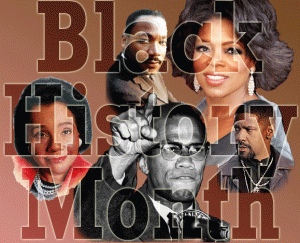Tuesday

It's Not Just the Shortest Month of the Year
I think black history month would do better if it promoted more stuff like this: biography of John Mitchell, the "Fighting Negro Editor" of the Richmond Planet at the turn of the century. The man had it all: guts, erudition, and prose. Kinda like your blogger.
A lynching had taken place at a crossroads in Charlotte County in rural Southside Virginia in May 1886, an event brushed aside in the white press, but taken up in a blistering editorial by Mitchell in the Planet. In response, the journalist received a threatening–and anonymous–letter from Southside with a skull and crossbones on the envelope and the following message: “If you poke that infernal head of yours in this county long enough for us to do it we will hang you higher than he was hung.”
Mitchell printed the letter in his newspaper and added his own response, which he based on a quote from Shakespeare: “There are no terrors, Cassius, in your threats, for I am armed so strong in honesty that they pass me by like the idle winds, which I respect not.” He traveled to the scene of the barbaric crime–walking five miles in plain sight to get there–then strolled around the neighborhood and visited the jail from which the black man had been kidnapped. All the while wearing a pair of Smith & Wesson revolvers. “The cowardly letter writer was nowhere in evidence,” Mitchell later reported.
Unfortunately, he ended poorly: "In 1921, Mitchell even ran for governor on what whites contemptuously called a 'lily-black' ticket. He lost in a landslide, and his life began to take a downward turn. Indicted for bank fraud, he was sentenced to three years in prison in 1923. The Supreme Court of Appeals subsequently overturned the conviction, but the damage had been done. His final years were marred by poverty and disgrace . . .". Still, if black history spent more effort shedding light on its impressive individuals instead of more light on the white race's bigotry, it'd be a more interesting and useful topic. As it is, it normally leaves me cold, bored, and unimpressed. * * * * * * * About ten years ago, I read Booker T. Washington's Up from Slavery. I wanted to write an essay about the parallels between his ideas and Chesterton's distributism, but alas, I never got around to it. For an aspiring young essayist with time and beer on his hands, though, I think it'd be a good project. Just read Up from Slavery and What's Wrong with the World, jot down some similarities, then elaborate. It'd be harder than that, of course, but not much. As I read Washington, I kept thinking, "I wonder why GKC never wrote about this guy? They seem to have a lot in common." * * * * * * * Of course, if we take our cue from Black History Month, we can assume GKC merely ripped off BTW without giving proper credit.
